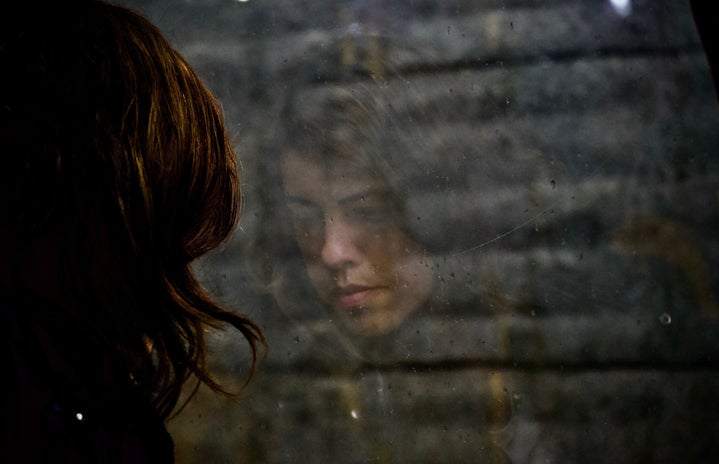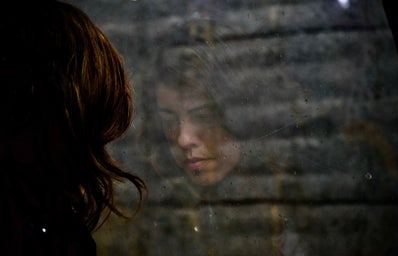TW: mentions of death, murder, gun violence, terror attacks
As I sat on my knees peering through the bars of the balcony, I watched my aunt standing by the front door sobbing. We were in the city of Tagaytay in the Philippines, visiting a family friend for their birthday. I asked my nanny beside me what was wrong. She didn’t know. Through eavesdropped conversations, I gathered the fact that my grandfather, or lolo as we say in Tagalog, was stabbed to death that November night. He had been enjoying a drink in his garage with the door open in Caloocan City, two hours away from us, when he got into an argument with a man passing by. The man had been in the area to kill someone else but because of this heated encounter, he decided to take my lolo’s life instead.
That was the first time I remember encountering death. At just four years old, I didn’t understand what it was exactly. All I knew was that my lolo, who used to bring me Sun-Maid raisins every time he visited, would never be able to offer me another box again. This same idea would be cemented in my head about one year later when my grandmother, or lola, passed away after suffering complications from a stroke and a lengthy battle with brain cancer.
I had to learn to deal with two kinds of death. A quick and sudden one like my lolo, and a lasting and prolonged one like my lola. The death of my lolo was shocking because it was unexpected, but the death of my lola was something my family slowly came to terms with since she had been sick for a while. I remember feeling sad after the loss of my lolo and lola but at the same time, because I was so young and barely had time with either of them, I felt like I moved on rather quickly.
A few years after, my mom, aunt and I moved to Canada when I was seven years old. Life in Canada was great for the most part. I had a normal childhood, great friends and a small but close family. I accepted the loss of my grandparents and never really thought or worried about death. The mentality among many Filipinos is that North America was a land of opportunities and a place that was safe. Canada felt safe compared to the Philippines, so coming here seemed like nothing to worry about. I can’t pinpoint the exact moment that changed for me.
As I went through elementary school and high school, I suddenly saw the news filled with stories of shootings and terror attacks. While most were happening south of the border, the situations felt like they transcended borders. Shootings at movie theatres, concerts, schools, clubs— the list goes on and so does my anxiety around it all. The victims of the shootings also seemed to be getting increasingly younger. People my age or younger were dying in these ill-fated situations. The bombing of Ariana Grande’s Manchester show was an event that really stuck with me, mostly because I had attended that same tour just a few months prior in Toronto. It made death feel even closer to me and forever changed my mentality.
Now when I go out in public, there is always a thought in the back of my mind that tells me to beware of my surroundings. When I sit in a movie theatre, I look at the exit points and think about how I would protect myself were someone to come in and start shooting. At a concert, I get nervous when security doesn’t seem to be checking bags thoroughly. In these scenarios, I just think if it could happen to people like my lolo, it could happen to me, so I need to be careful.
Then a global pandemic occurred and added the stress of a threat I couldn’t see to my list of worries. The threat of COVID-19 and the fact that anyone could have it and not know that they’re spreading it to other people really troubles me. While there are measures that can be taken to protect yourself, the fact that not everyone follows these guidelines and in turn, harms others due to their careless actions, makes me feel like this is another thing bringing me closer to death. The ways in which the virus affects people reminds me of the contrasts between my lolo and lola’s deaths. Some people contract the virus and then die shortly after, and some lie in a hospital bed supported by a ventilator for months. Either way, it is a life taken too soon.
I think the scariest part of death for me is the erasure of my existence. I’m only 22-years-old, so I haven’t done much with my life, and one of my greatest worries is that I will never get the chance to. There’s so much I have yet to experience, so many places I have yet to explore. If I die tomorrow, what legacy do I leave behind? Especially when I haven’t had the chance to do anything worth remembering yet.
I also think about all the things that I would miss from sentimental moments like milestones in my family’s life to trivial things like my favourite artist’s 20th album. I want to be able to cheer my friends on and support them through their future successes. I wonder about all the people I have yet to meet. There’s still so much life left for me to live but I often feel like I don’t have enough time.
Most people who are thinking of death are most likely older or sick people, not generally healthy 22-year-olds like me. But as much as I try to ignore it, my fear of death is something that has been a part of me for a long time. While I try not to let it consume me, it is always there lurking in the shadows and occasionally invading my thoughts. I think about my lolo and lola sometimes and what they would be up to had they still been alive. I wonder how my life would change and what memories I would have of them if they had been a part of my life for longer than four and five years. But much like the loss of my lolo and lola, my fear of death is something that I must learn to live and come to terms with. Death will be at everyone’s door one day but I can’t allow it to kill my life too.



